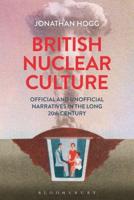Publisher's Synopsis
Since the dawn of spaceflight, advocates of a robust space effort have argued that human activity beyond earth makes a significant difference in everyday life. Assertions abound about the "impact" of spaceflight on society and its relationship to the larger contours of human existence. Fifty years after the Space age began, it is time to examine the effects of spaceflight on society in a historically rigorous way. Has the Space age indeed had a significant effect on society? If so, what are those influences? What do we mean by an "impact" on society? And what parts of society? Conversely, has society had any effect on spaceflight? What would be different had there been no Space age? The purpose of this volume is to examine these and related questions through scholarly research, making use especially of the tools of the historian and the broader social sciences and humanities. Herein a stellar array of scholars does just that, and arrives at sometimes surprising conclusions. Once contemplated, the subject is broad, rich and stimulating. Spaceflight has commercial and economic dimensions, as well as social, cultural, and ideological ramifications. It touches on enduring American values of pioneering, progress, enterprise, and rugged individualism. Worldwide it encompasses international cooperation and competition, and affects foreign policies, national security, and questions of the global environment. Viewing earth from space, and space from the vicinity of earth, alters world views, conceptions of self and others, and understandings of our place and purpose in the universe.








